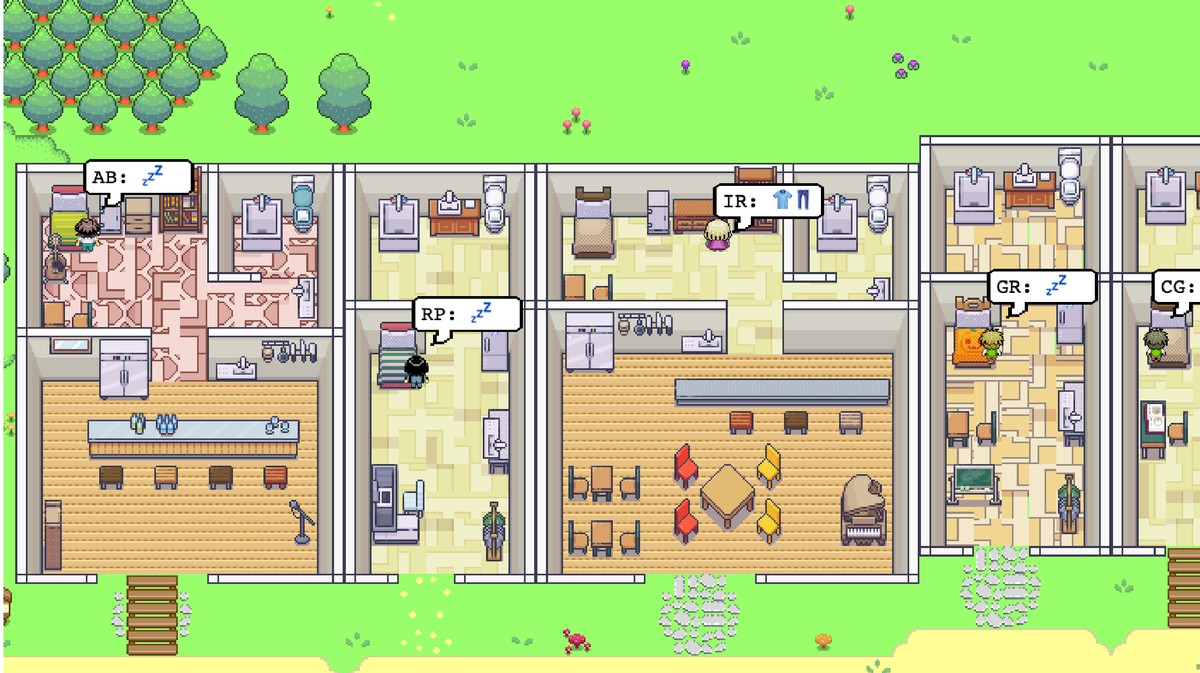Google and Stanford researchers conducted an experiment using ChatGPT to simulate humanlike characters in a virtual setting, showcasing the potential of AI to create a believable "artificial society"

The Game Environment (Stanford HAI)
Key Innovations and Findings: Researchers have made significant progress in AI simulations
Using ChatGPT, they've developed 25 characters with distinct personalities and routines, such as waking, eating, working, and socializing, within a video game-like environment known as Smallville.
These generative agents possess memory capabilities, allowing them to recall experiences, interact based on past interactions, and even form long-term plans, showcasing a level of autonomy in their behavior.
“We’ve demonstrated the ability to create general computational agents that can behave like humans in an open setting,”
Technical Breakthroughs: Reveals complex cognitive abilities
The project highlights an advanced computational architecture that enables these characters to exhibit believable human behaviors autonomously.
Characters can engage in various activities, remember past events, and plan future actions, demonstrating the project's success in simulating humanlike intelligence.

The in game agents (Stanford HAI)
Applications and Implications: Beyond entertainment
The believable behavior of these AI characters paves the way for more interactive and engaging non-player characters (NPCs) in video games, enhancing the gaming experience.
This research has implications for social science, offering a new method for simulating social interactions and understanding human behavior in virtual environments.

